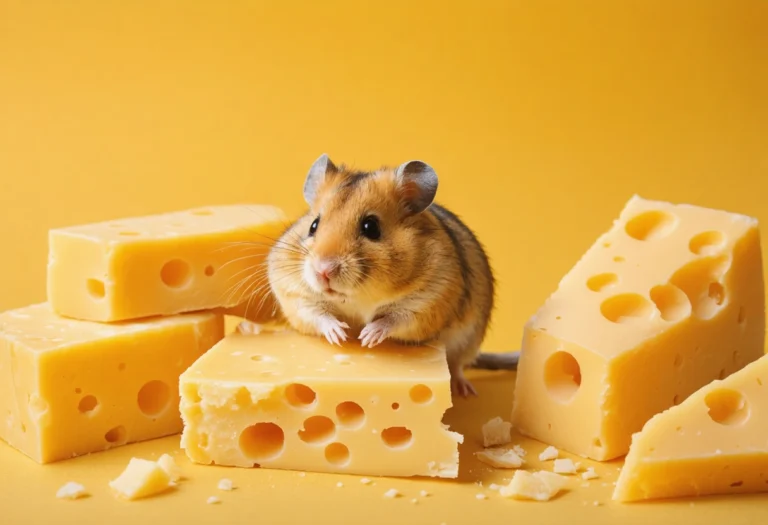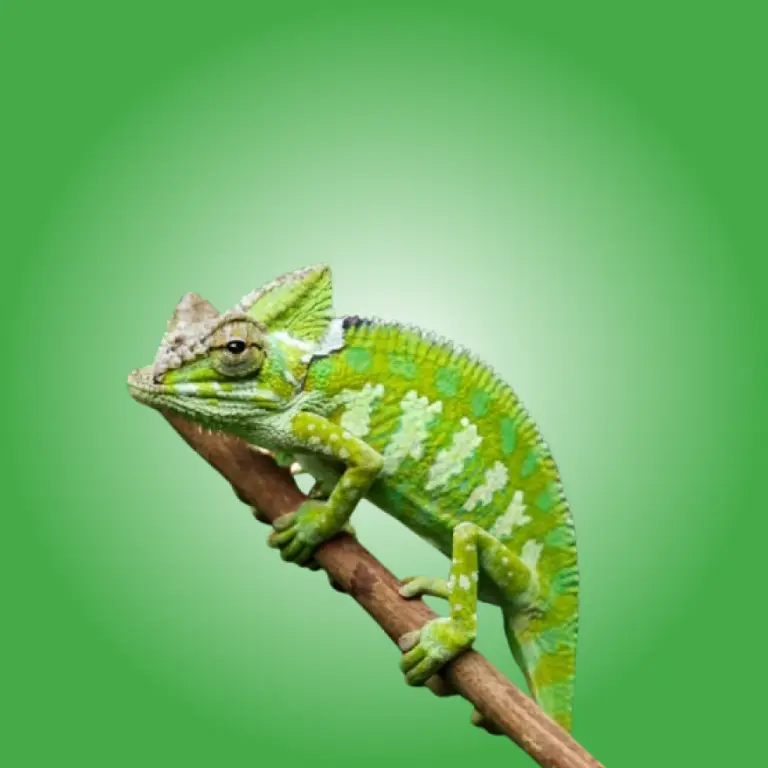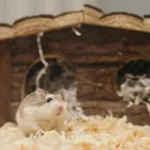can hamsters eat cheese?
The short answer is yes, hamsters can eat cheese—but only in moderation.
Cheese is not toxic to hamsters, and many of them enjoy its taste.
However, just because they can eat it doesn’t necessarily mean it’s the healthiest choice for them.
Hamsters are naturally omnivorous, meaning their diet in the wild consists of grains, seeds, fruits, vegetables, and even small insects. While cheese doesn’t fit into their natural diet, it can be offered as an occasional treat. However, it’s essential to choose the right type of cheese and serve it in small portions.
Quick Fact:
Hamsters have sensitive digestive systems, so introducing new foods, like cheese, should always be done gradually and with caution.
Is Cheese Good for Hamsters?
Cheese contains protein, calcium, and fat, all of which are essential nutrients. In tiny amounts, these nutrients can benefit your hamster. For example:
- Protein: Helps with muscle growth and repair.
- Calcium: Supports strong bones and teeth.
- Fat: Provides energy—but too much fat can lead to obesity.
That said, cheese is not a “superfood” for hamsters. Its high fat and salt content make it less than ideal as a regular part of their diet. Some types of cheese, especially processed ones, contain additives and preservatives that can be harmful to your hamster. Stick to plain, low-fat, and unsalted cheese varieties, such as mozzarella or cottage cheese, if you decide to give it as a treat
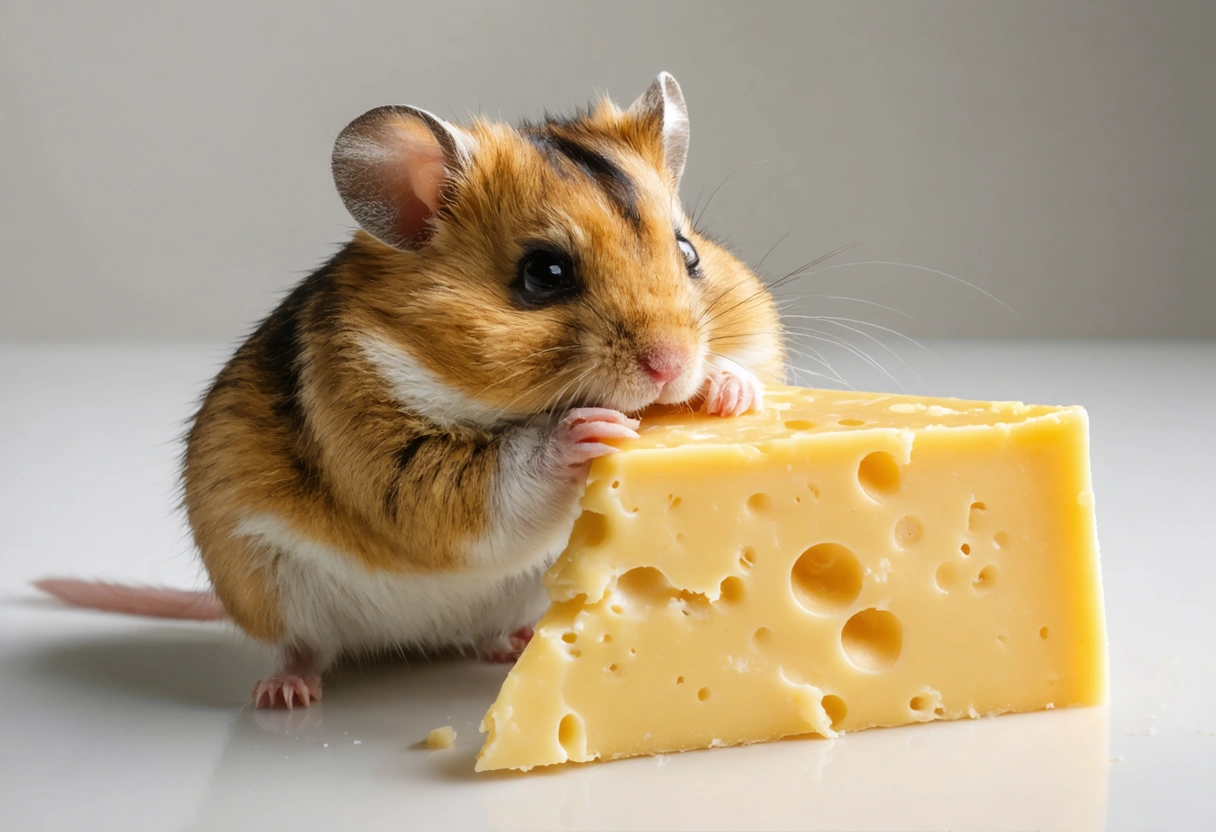
Side Effects of Feeding Hamsters Cheese
While cheese can be a fun and tasty snack for your hamster, there are potential risks to consider:
-
Digestive Upset
-
Obesity
-
Salt Toxicity
-
Choking Hazard
What to Do If Your Hamster Has Too Much Cheese
Accidents happen—maybe your hamster managed to sneak an extra bite of cheese, or you accidentally gave them more than intended. If your hamster overeats cheese, here’s what you should do:
- Monitor Their Behavior: Watch for signs of digestive upset, such as diarrhea, lethargy, or bloating.
- Provide Fresh Water: Cheese can be dehydrating due to its salt content, so make sure your hamster has plenty of fresh water available.
- Adjust Their Diet: For the next few days, stick to their regular diet of hamster pellets, fresh vegetables, and other safe foods to help their digestive system recover.
- Contact a Vet: If your hamster shows concerning symptoms, such as severe diarrhea, refusal to eat, or unusual behavior, consult a veterinarian immediately.
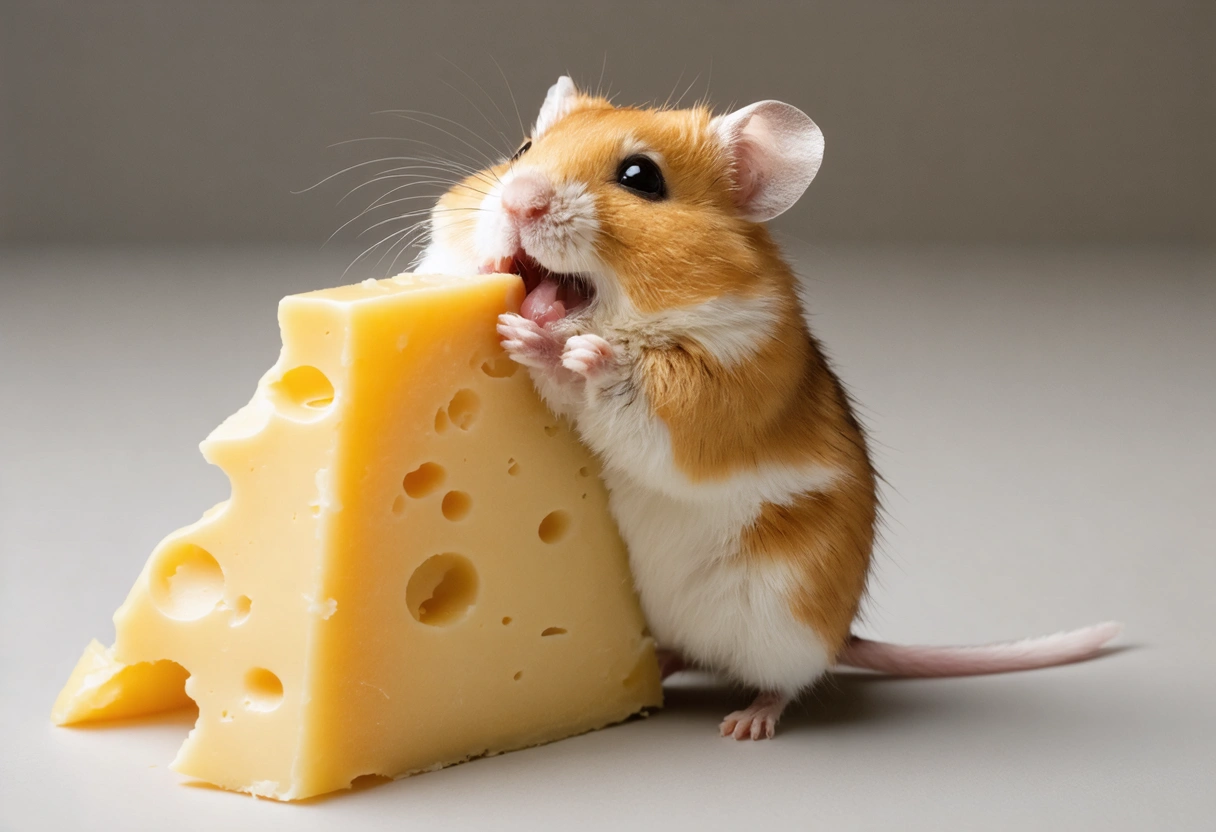
Quick Tip:
Prevention is key! Always measure out treats carefully and avoid giving your hamster cheese more than once or twice a week in very small amounts.



